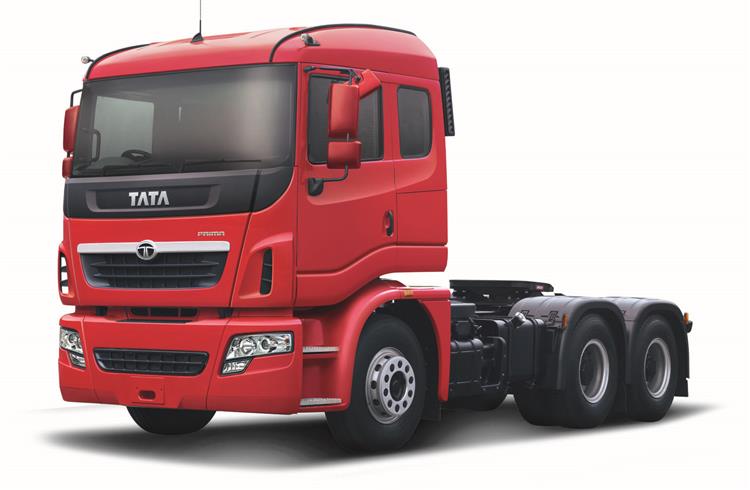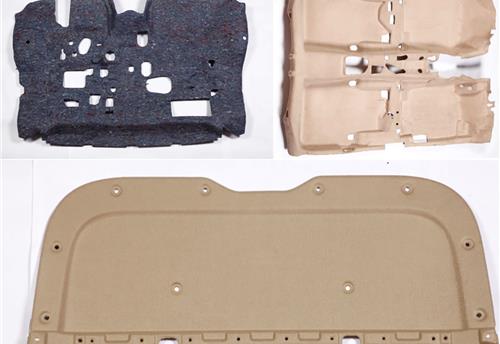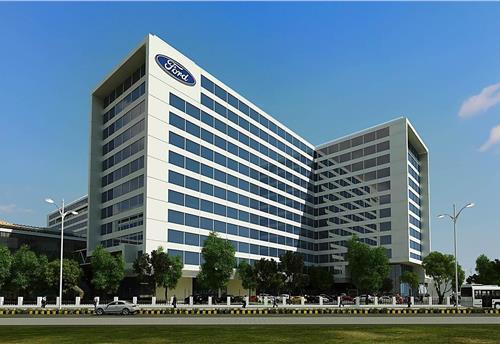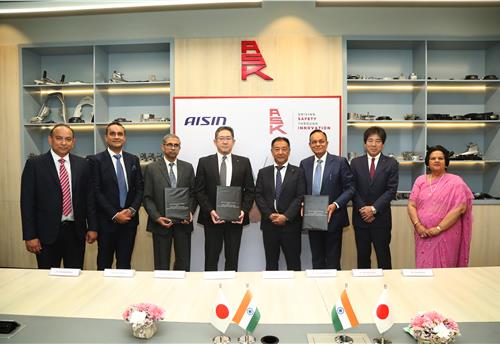Tata Motors ready with BS IV CVs with EGR and SCR tech
While Exhaust Gas Recirculation technology will be used for its small to medium CVs with power up to 180hp, Selective Catalytic Reduction goes on its M&HCVs that have engines developing 130hp to 400hp.
Tata Motors has announced its readiness of SCR (Selective Catalytic Reduction) and EGR (Exhaust Gas Recirculation) technologies for BS IV engines powering its range of commercial vehicles.
EGR technology, which helps reduce NOx emissions from the engine and adopted by Tata Motors in 2010, will continue to power its small-to-medium category of CVs with engine power up to 180hp. Tata says it has developed EGR technology in-house and it covers the entire range of Tata engines including the new-generation 3-litre and 5-litre engines
Tata Motors has, since 2014, used the globally proven SCR technology for its medium and heavy-duty CVs ranging from 130hp to 400hp. Tata Cummins, a JV between Tata Motors and US-based Cummins Inc, has developed these engines. SCR technology allows engine to operate at more optimal combustion temperature providing better power, fuel efficiency and lower NOx and particulate matter generation.
While EGR is a relatively low cost, simple, and easy to integrate technology, SCR can be scaled up further to meet upcoming BS VI norms.
According to Tata Motors, it has “perfected both the SCR and EGR technologies on a wide range of vehicles that have been sold to customers within India as well as abroad.”
Speaking in Mumbai today, Ravindra Pisharody, executive director - Commercial Vehicles, Tata Motors, “Tata Motors has led technology changes in the Indian commercial vehicle industry over the last six decades. Introduction and adoption of EGR and SCR technology in 2010 and 2014 respectively reiterates our capabilities with regard to introducing future technologies. Because we strongly believe in offering the best-suited technology for various applications, we will offer both SCR and EGR technologies on BS IV solutions. This will not only meet regulatory requirements for emission norms but also optimise the total cost of ownership, ultimately benefitting our customers.”
Pisharody added, “Offering precise technology for the right duty cycle and application will be critical for the success and sustainable business operations of the CV industry. At the onset of BS IV emission norms in India and provident on the ensuing BS VI emission norms from April 2020, we are confident that our selection of emission control technologies across the CV range is holistic and the most ideal one, given that it takes into consideration critical aspects such as performance, reliability, commercial affordability, environmental sustainability and future readiness.”
EGR & SCR: Different tech, same mission
With BS IV becoming mandatory for the entire CV industry from April 1, 2017, all the CV majors have been quick on to announce their engine technology upgrades to the product range. While some players have already been exporting BS IV CVs, some are making the transition now either to EGR or SCR or both. Importantly, all of them will be looking to disseminate information on these new engine technologies to both their own service personnel as well as existing and potential customers.
While Tata Motors has today announced availability of its BS IV-ready and EGR and SCR-equipped CVs, Ashok Leyland and Eicher Trucks & Buses had announced their readiness earlier this month.
On April 21, Ashok Leyland had showcased its future-ready products based on its in-house developed Intelligent Exhaust Gas Recirculation (iEGR) technology for its products above 130hp. The company says iEGR technology is a simple yet innovative solution to achieving the desired results to meet BS IV emission norms.
Ashok Leyland claims this technology is not only better suited to Indian conditions compared to Selective Catalytic Reduction (SCR) technology (based on European technology) but will also prove to be hugely cost effective, easy to operate and hassle-free to maintain, thereby resulting in improved total cost of ownership and better margins compared to products by OEMs which are based on SCR technology.
Meanwhile, on April 25, Eicher Trucks & Buses launched its new Pro 5000 truck range which employs both EGR and SCR engine technologies. The EGR-equipped trucks are priced lower and are aimed at operators who do less than 8,000 kilometres a month as compared to the longer-haul SCR-equipped models which are capable of over 10,000 kilometres a month.
On April 7, Daimler India Commercial Vehicles launched its BS IV-compliant BharatBenz range of trucks in 9- to 49-tonne range. These trucks use an SCR tech-based system proven in thousands of Daimler CVs in many overseas markets over a decade. DICV says it has tested this technology in Indian operating conditions for over a million kilometres. SCR uses an aqueous urea-based fluid called AdBlue, which is sprayed into the exhaust stream to break down dangerous nitrogen oxide emissions into harmless nitrogen and water.
RELATED ARTICLES
Uniproducts India targets 15% growth till FY2027, eyes new EV OEMs for NVH parts
The Noida-headquartered company, which is a leading manufacturer of roof liners, floor carpets, sound insulation materia...
Ford to build more EV software capability at Chennai tech hub
Ford Business Solutions India, which currently employs 12,000 personnel set to add 3,000 more; Ford, which is known to b...
ASK Automotive to set up JV with Aisin to sell aftermarket parts for cars
Ask Automotive will have 51% of the equity of the joint venture to be set up with Aisin Asia (Thailand) Company and Aisi...





 By Autocar Pro News Desk
By Autocar Pro News Desk
 26 Apr 2017
26 Apr 2017
 20053 Views
20053 Views









